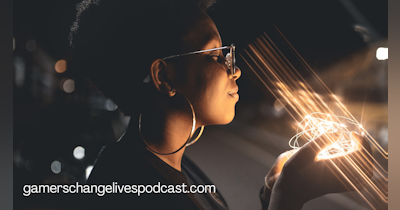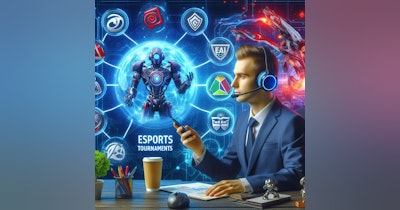Esports continues to make waves as its own sector from the gaming industry all around the world. We have seen revenue skyrocket into the billion dollar bracket, with hundreds of millions in viewership and streaming hours. Slowly working its way into becoming a traditional sport as part of the next level targets, we have witnessed this industry also thrive with numerous startups and businesses getting involved. Today we highlight the input and efforts in the esports business with Nimish Raut, who is the global head of esports partnerships and special projects of Nodwin Gaming.
His journey in esports actually started from renting out 8-bit/16-bit video games. This was when he was nine years old and had consoles bought for him by his dad. He was giving the games to his friends so they could go play over the weekends, but he felt it was a bit unfair that he was not getting anything in return. So that is when the idea came to him to have it work as a proper game rental business with a fairly reasonable amount. Fast forward into making a bank of about $70 to $80 a month until the PC revolution came and had almost everyone with one hence slowing down the rental business.
Nimish still found his way into the world of sports management after he got to work with Red Bull in 2012 and got introduced to League of Legends. He revisited the idea of video games and realized how competitive they had become. He looked forward to being among the handful of people who get to make this shift in esports when the market was to get big in India, and thankfully found his way into Riot Games, and through this opportunity later entered Fnatic as one of the leading esports marketing persons in India.
"For any sport to be successful, you need to have people play the sport a lot and also watch the sport." — Nimish Raut, Nodwin Gaming
Nimish points out that for a sport to be successful, you have to have people play the sport a lot as well as have a lot of people watching the sport too. It is how it can become a commercially viable product, and it is with no doubt that esports has a massive fan base per the viewership numbers. In India the most popular game played is BGMI [Battlegrounds Mobile India], which is their PUBG Mobile equivalent.
"I think for any sport to be successful, you need to have people who are extremely loyal and extremely interested in the outcome of the competitive side of the sport." — Nimish Raut, Nodwin Gaming
It is also important to note the loyalties and interests of the sport for it to be successful. Will teams want to make a comeback after they lose to their opponents? Are teams ever ready to defend their titles should they have matches fixed for tournaments or on a one-on-one one-time challenge? Factoring in the emotional attachment to wins and losses can make the sport a successful one. And these factors are what make traditional sports and esports different.
To have bigger brands be invested in esports is another aspect to consider. The traditional sports have that for their ecosystem, and esports is gradually making that happen for them too. The brands who were invested in esports mostly had to be around the hardware and software companies; the kind that made the equipment for them. Brands like automobiles, beverage companies, apparel companies and the like through their investments got to not only validate the sport, but also have their products be marketed and sold to potential customers, small and large.
The work to be done when it comes to this aspect of marketing and investment is helping these bigger brands be familiarized with the sport. So if we can keep the sport active and running, with patronage from viewers and supporters, overtime they would have their products be used by what will now be their customers as they will associate their involvement as supporters of the sport. Going further, there could be brand inertia for both parties involved, so there would not have to be much done to prove why either product or sport is necessary to have or support.
Esports is technically five years old, so with brand support over a decade and more, we should be looking at this industry being viewed in the same lenses of success and entertainment as that of the NBA.
“So don't go out there and look desperate and talk to everyone. Be very selective about who you think are the best possible partners for your particular product.” — Nimish Raut, Nodwin Gaming
Nimish points out that you need to be clear about what product you want to sell to your potential sponsors so they can get on board with you. If you are not clear with what product it is you want to sell, it is likely you may not have that sponsor, seeing that you have not shown clarity in the proposition. He also mentions that it is best to have questions asked about the product. That way you have the sponsor intrigued by them wanting to increase their knowledge around the product.
"You need to be honest to yourself. 'What is the kind of money you're looking for? And then scan down the categories of guys that you want to talk to." — Nimish Raut, Nodwin Gaming
The second point is to be honest with yourself. What is the kind of money you are looking for? And then you can look for the category of people you want to talk to. Do not go out there looking desperate; stick to the names you want to talk to in the category you have them in, and push the idea to them.
There will be the likelihood of having to educate them a little bit on esports and why their investments will mean a lot. It may not always end up with you getting what you set out to attain, seeing that this is still a growing industry, but it helps in the long run as it will surely give them reason to pull out the big bucks as you too prove to them why it will be big.
Esports has helped create jobs for lots of people. Interested in knowing about the business side of esports? Listen to the Gamers Change Lives Podcast! We get experienced guests from all around the world featuring.
Written By Jeffrey Osei-Agyeman










